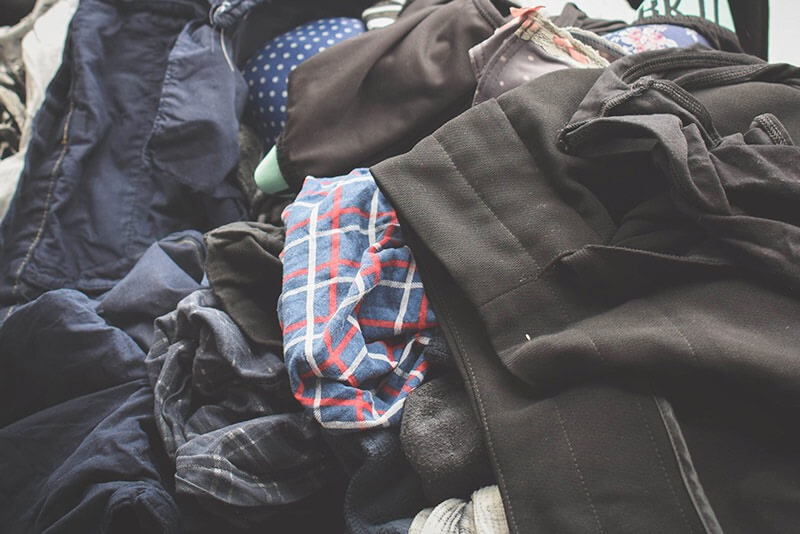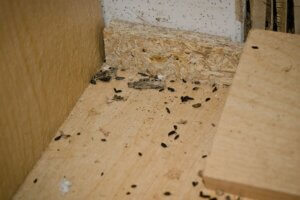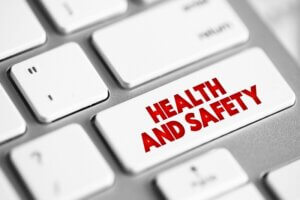BLOG

Why Hoarding Situations Require Biohazard Cleaning Expertise
Why Hoarding Situations Require Biohazard Cleaning Expertise
Hoarding is more than just collecting items. It’s a complex psychological disorder that often leads to the accumulation of excessive clutter and items that pose serious health and safety risks. In many cases, these environments become contaminated with hazardous materials that can include mould, pests, decaying organic matter and bodily fluids. This is where biohazard cleaning comes into play.
Professional biohazard cleaning experts are essential for managing and safely restoring these environments, ensuring the health and safety of everyone involved. Below, we’ll explore why hoarding situations require specialised biohazard cleaning expertise and the benefits of engaging professionals for these challenging tasks.
1. Understanding The Health Risks Associated With Hoarding

Hoarding environments are more than just cluttered spaces; they are often contaminated with harmful substances. Common risks include:
- Mould and mildew: When items are stacked or piled for extended periods, moisture can become trapped. This creates the perfect environment for mould growth. Mould spores can cause severe respiratory issues and allergic reactions, particularly in vulnerable individuals such as the elderly or those with pre-existing health conditions.
- Pest infestations: Rodents, insects and other pests thrive in hoarded environments. They often carry diseases and leave behind droppings, which can contaminate the space and present serious health hazards.
- Bacteria and pathogens: Decaying organic matter, such as food waste or deceased animals, can harbour harmful bacteria and pathogens. In extreme cases, biohazard cleaning becomes necessary to remove any trace of these contaminants safely.
Professional biohazard cleaning services are equipped with the knowledge and tools needed to identify and handle these risks appropriately. Without expert intervention, those exposed to these environments could face serious health consequences.
2. The Importance Of Specialist Equipment And Biohazard Cleaning Training
Biohazard cleaning is not a task for the untrained. Cleaning a hoarding environment requires specialised equipment and extensive training to manage the various hazards present. Personal protective equipment (PPE), industrial-grade cleaning agents and decontamination tools are crucial in ensuring a thorough and safe cleanup.
Biohazard cleaning technicians undergo rigorous training to handle different biohazards correctly, including:
- Safe removal of contaminated materials: Hoarded spaces often contain items contaminated with biological matter, chemicals and other hazardous substances. Technicians are trained to remove these items while minimising the risk of exposure.
- Proper disposal methods: Not all waste can be disposed of through regular rubbish collection. Biohazard cleaning professionals know the regulations for hazardous waste disposal. They work in compliance with local council guidelines to ensure materials are disposed of safely.
- Decontamination and sanitisation: After removing contaminated materials, thorough decontamination is necessary. Biohazard cleaning experts use specialised solutions to disinfect and sanitise areas, ensuring they are safe for future use.
3. Adhering To Biohazard Cleaning Health And Safety Regulations

In Australia, health and safety regulations for handling and disposing of biohazardous materials are strict. Biohazard cleaning professionals understand these laws and follow all procedures to ensure compliance, protecting both the client and their workers. Hoarding situations often involve complex cleanup processes, which require more than a simple surface cleaning. Compliance with regulations ensures the safety and health of everyone involved.
When hoarding situations are not managed by professionals, there is a significant risk of improperly handling hazardous materials. This can lead to further contamination or legal issues. Using an expert biohazard cleaning service ensures that all local regulations are adhered to, providing peace of mind to the property owner and other stakeholders.
4. Addressing Odours And Air Quality
One of the most challenging aspects of hoarding cleanup is dealing with unpleasant odours caused by decaying matter, mould, or animal waste. These odours can permeate walls, floors and furniture, creating a persistent problem. Biohazard cleaning professionals use specialised equipment like air scrubbers and ozone machines to neutralise odours and improve air quality. This not only makes the property more liveable but also ensures that all harmful contaminants are thoroughly removed.
5. The Psychological Aspects Of Hoarding Biohazard Cleaning

Hoarding is not just a physical issue; it’s also a deeply emotional and psychological challenge for those affected. Professional biohazard cleaners understand the delicate nature of these situations and often work alongside mental health professionals to support individuals struggling with hoarding disorder.
Trained biohazard cleaners approach each situation with sensitivity and respect, ensuring the affected individuals and their families feel supported throughout the process. This professional, empathetic approach is essential for a successful cleanup, as it helps create a safe and trusting environment for those dealing with the trauma of hoarding.
Additionally, biohazard cleaning experts work efficiently to minimise the distress that can come with watching possessions being removed or discarded. By involving professionals, individuals are assured that the cleanup is done with care and the highest standard of hygiene, making it easier to transition to a healthier living environment.
6. Restoring The Property To A Safe And Livable Condition
Hoarding situations often lead to severe damage to the property, including structural issues, water damage and long-term contamination. Biohazard cleaning professionals are not only responsible for removing hazardous materials but also for restoring the property to a safe and habitable state.
This involves:
- Thorough inspection and assessment: Before any work begins, biohazard cleaning technicians assess the property to identify all areas of concern. This step is critical for developing a comprehensive cleanup plan that addresses all risks and contamination sources.
- Deep cleaning and sanitisation: After removing contaminated items, biohazard cleaners use specialised techniques to deep clean and sanitise the entire area, reducing any lingering odours or harmful bacteria.
- Restoration and repair recommendations: In some cases, hoarding situations may require further repairs to restore the property fully. Biohazard cleaning services often collaborate with other professionals, such as builders or pest control experts, to ensure the property is safe and livable once again.
7. Reducing The Risk Of Recurrence

Professional biohazard cleaning not only addresses the immediate hazards associated with hoarding but also helps reduce the risk of future issues. By thoroughly sanitising and restoring the property, experts ensure that the space is safe and clean, making it less likely for pests, mould or other hazards to return.
8. Minimising Liability And Legal Risks
In some cases, hoarding situations can result in legal complications, particularly when property damage or hazards affect neighbours or the community. Engaging a professional biohazard cleaning service reduces the risk of liability by ensuring the cleanup is conducted according to all safety regulations and standards. Proper documentation of the cleanup process by professionals can also serve as evidence of compliance, protecting property owners from legal repercussions.
Hoarding Help From Professional Biohazard Cleaning Experts
Hoarding situations present unique and complex challenges that require specialised biohazard cleaning expertise. These cleaning professionals, such as Australia’s National Trauma (NTCSC) are equipped to handle these environments safely and effectively. Their role goes beyond cleaning. They provide essential support to individuals dealing with hoarding, restoring their living spaces and ensuring a safe and healthy environment for all.
If you are faced with a hoarding situation, reach out to the team at NTCSC. We’re here to help with your hoarding biohazard cleaning needs anytime 24/7.